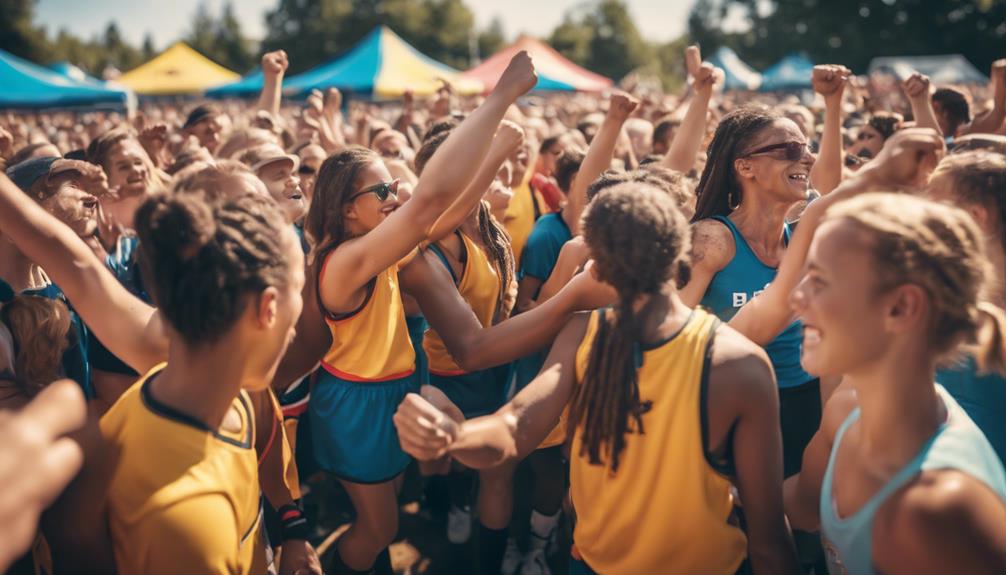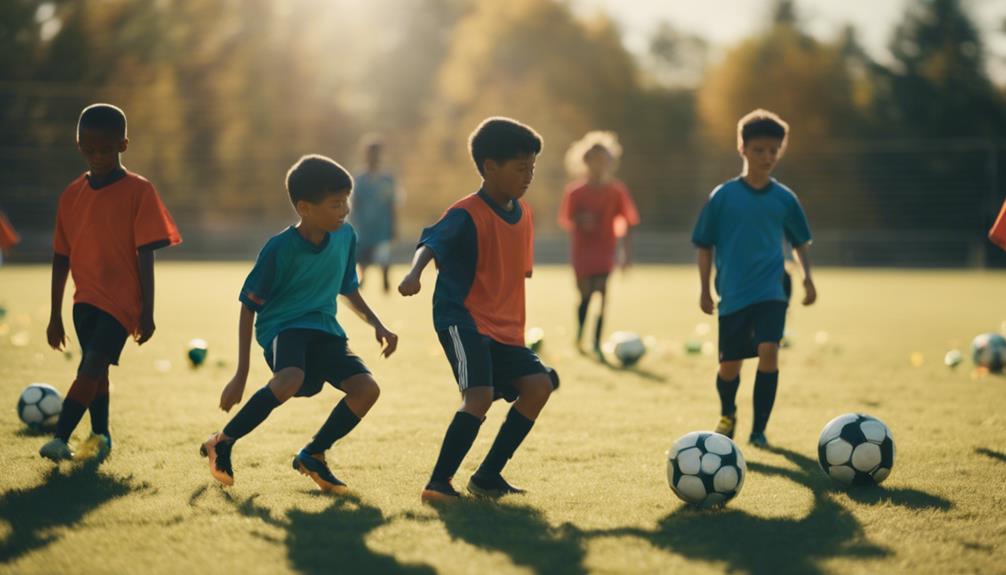
When students think about college sports, their minds often drift to the big-time programs of Division 1 schools, complete with flashy scholarships and national championships. However, the landscape of college athletics is much broader, especially when you consider Division 3 (D3) schools. In this article, we’ll dive into how Division 3 institutions operate, particularly regarding sports scholarships, the types of support available to athletes, and the unique experience of playing at this level. If you’re contemplating the D3 route for your athletic career, read on to discover what this division has to offer.
Understanding Division 3 Schools and Their Athletic Programs
Division 3 schools are a category within the NCAA that prioritize the student-athlete experience. With over 400 member institutions, D3 schools focus on the balance between athletics, academics, and extracurricular activities. Their commitment is to provide a well-rounded college experience, which often means that sports are just one part of their students’ lives. Unlike Division 1 and Division 2 schools, D3 institutions do not offer athletic scholarships, but they do have competitive sports programs that allow students to excel in both their chosen sport and academics.what are therapeutic exercises
The culture at D3 schools encourages participation and teamwork without the overwhelming pressure that can accompany sports at higher divisions. Many D3 athletes compete at a high level and experience significant success in their sports, but the D3 philosophy is centered around the idea that college is primarily about education. This balance helps students develop both on and off the field, creating well-rounded individuals who often go on to excel in their careers after college.
The Myth of Scholarships in Division 3 Athletics
One common misconception about Division 3 athletics is the belief that athletic scholarships simply do not exist. While it’s true that D3 schools cannot offer scholarships based solely on athletic ability, this doesn’t mean that athletes miss out on financial aid altogether. Instead, these institutions provide a range of other funding options that can significantly reduce the overall cost of attendance. This distinction is crucial for athletes considering their options.
Prospective students might be surprised to discover that many D3 schools have generous financial aid packages, including need-based aid, merit scholarships, and grants. These funding opportunities can sometimes result in financial support that rivals what students might receive at a Division 1 or Division 2 school, albeit without the explicit designation of an athletic scholarship. This creates an environment where students can still compete at a high level while benefitting from financial assistance based on academic merit or financial need.
Different Types of Financial Aid in D3 Sports
At Division 3 schools, financial aid comes in various forms that extend beyond athletic prowess. Many institutions offer need-based financial aid, which is determined by the financial situation of a student and their family. This kind of support is designed to make college more affordable for those who demonstrate financial need, ensuring that all students have access to education regardless of their economic background.
Additionally, D3 schools often provide merit-based scholarships that reward academic excellence. These scholarships can be substantial, and they often encourage students to maintain a high GPA while participating in their sport. For many athletes, combining merit scholarships with need-based aid creates a financial package that can make attending a D3 school a viable option without the weight of athletic scholarships.
How Division 3 Schools Support Their Athletes
Division 3 institutions recognize the importance of supporting their student-athletes, and this support manifests in several ways. From dedicated athletic departments to academic advising specifically for athletes, D3 schools prioritize the dual commitment students have to their studies and sports. Many schools provide resources such as tutoring, study halls, and specialized academic advisors to help athletes balance their rigorous schedules.
Moreover, the culture at D3 schools is often more nurturing than at higher divisions. Coaches at D3 programs tend to focus on the personal growth and development of their players, fostering an environment that encourages athletes to thrive both in their sport and academically. This support system can lead to strong relationships between athletes and coaches, which further enhances the overall college experience.
What You Need to Know About D3 Recruiting
Recruiting at Division 3 schools operates quite differently than at Division 1 or Division 2 levels. Since D3 schools cannot offer athletic scholarships, the recruitment process often emphasizes the academic and personal qualities of potential athletes. Coaches typically seek students who are not only talented in their sport but who also fit well into the college’s academic environment and culture.
Prospective student-athletes should start their recruiting process early, showcasing their skills in competitions and maintaining good academic standing. Reaching out to coaches, attending showcases, and participating in summer camps can also increase visibility. It’s essential for athletes to communicate their interests clearly while demonstrating that they are well-rounded individuals ready to contribute to both the athletic program and the campus community.
The Benefits of Playing Sports at D3 Schools
Playing sports at a Division 3 institution comes with a unique set of benefits. One of the most significant advantages is the opportunity to compete at a high level while maintaining a strong focus on academics. Student-athletes at D3 schools often have more time to invest in their studies, allowing them to excel in their chosen fields. This balance can lead to a more rewarding college experience, where sports complement academic pursuits rather than overshadow them.
Furthermore, D3 athletics foster tight-knit communities. With smaller rosters and less emphasis on winning at all costs, athletes often form lasting friendships with their teammates. This sense of camaraderie can create a supportive atmosphere that enhances both athletic performance and personal growth, leading to a fulfilling college experience that extends beyond the playing field.
Balancing Academics and Athletics in Division 3
Balancing academics and athletics is a hallmark of the Division 3 experience. With the NCAA’s emphasis on the student-athlete model, D3 schools encourage athletes to prioritize their education while participating in sports. This approach not only prepares athletes for life after college but also instills valuable time management and organizational skills that can be beneficial in their future careers.
Athletes in D3 have access to various resources designed to help them maintain this balance. From academic workshops to flexible scheduling options, schools often cater to the unique challenges that student-athletes face. Additionally, the supportive environment allows athletes to prioritize their studies and seek help when necessary, ensuring they can perform well in both their sport and academics.
How D3 Schools Compare to D1 and D2 in Sports
When comparing Division 3 schools to Division 1 and Division 2 institutions, the primary difference lies in the approach to athletics and academics. While D1 schools are often characterized by high-stakes competition and significant media attention, D3 institutions prioritize a more balanced experience. This means that while the level of competition in D3 sports can be intense, it typically lacks the pressure to win at all costs often seen in D1 programs.
Division 2 schools offer a middle ground, allowing for athletic scholarships while still promoting the importance of academics. In contrast, D3 athletics emphasize participation, personal development, and community engagement. For many student-athletes, the D3 experience can be more rewarding, providing the chance to excel in sports while pursuing a meaningful education.
Real Stories: Athletes Thriving at Division 3 Schools
Many athletes have found success and fulfillment at Division 3 schools, showcasing the value of this level of competition. For instance, a track athlete might excel in their events while pursuing a degree in engineering, benefiting from the supportive environment and academic resources available. These students often find that their experiences in sports translate to success in their careers, with many going on to work in fields related to their majors.
Moreover, the friendships formed in D3 athletics often last a lifetime. Athletes recall the camaraderie of team gatherings, shared experiences on the field, and the support they received from their coaches and peers. These bonds create a sense of belonging that enriches their college experience, proving that success in D3 is not just measured by wins but by the overall growth and connections that come from participating in sports.
Choosing to play sports at a Division 3 school can lead to a fulfilling and enriching college experience. While the absence of athletic scholarships might initially seem like a drawback, the financial aid opportunities available, combined with a strong focus on academics and personal development, create a unique environment for student-athletes. With a commitment to balancing sports and studies, D3 athletes often find themselves thriving both on and off the field. So, if you’re considering the D3 route, embrace the opportunity to play the sport you love while pursuing an education that prepares you for future success!





